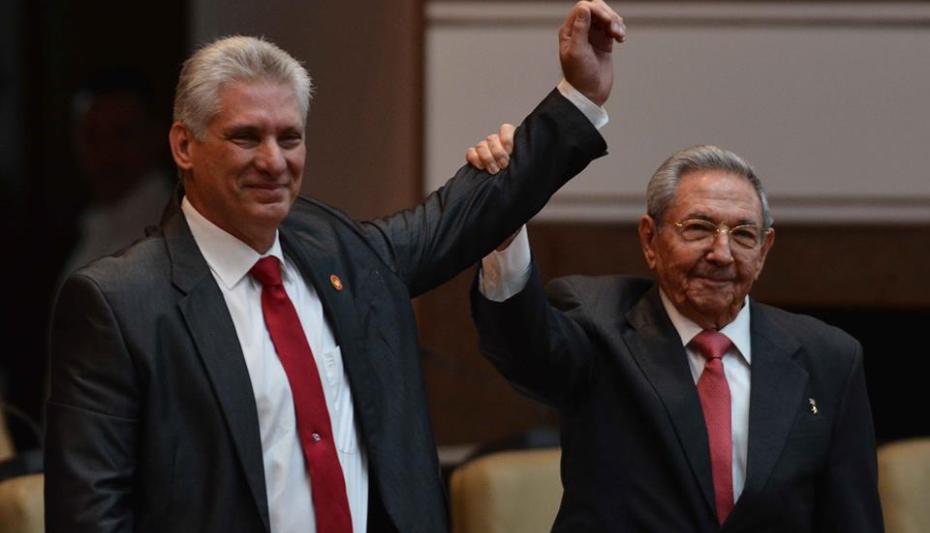
Cuba: Power and reform
In addition to the generational change that marks it, the rearrangement of the Cuban leadership also brought with it signs of what the future has in store when dealing with the exercise of power and economic reform.
Raúl Castro announced that the new Constitution, which will begin to be formulated this year, will give “all power” to the leader of the party, who at the same time will be head of state and government. That is what Miguel Díaz-Canel looks forward to in the horizon, and who, however, may have a prime minister in charge of public administration, as in China.
But, unlike Xi Jinping, who can be reelected for infinity, Díaz-Canel will have only two possible terms for a total term of ten years.
As the first secretary of the Communist Party of Cuba (PCC), until the next Congress, in 2021, Raúl is the “current leader of the revolutionary process,” said the new president.
Díaz-Canel pledged to enforce the plans for reform and that they be complied with, and he called for “correcting errors.” He proposed to move forward “without haste but without pauses, a wise warning from Comrade Raúl.”
Raúl, in turn, expanded on the point and was explicit: he had expected that by now there would be more progress and a new Constitution.
But “it was not possible to ensure the participation of groups, organizations and entities that from the base would be able to guide, train and control the proper implementation of approved policies,” said Raúl, in an elliptical reference to negligence, omission or frank resistance of the bureaucracy in its different levels to avoid the execution of the changes.
In addition, added the first secretary, “it was necessary to overcome the colossal obstacle of a mentality based on decades of paternalism and egalitarianism, with significant consequences in the functioning of the national economy.”
Against the general perception of stagnation, he offered to expand the framework of self-employment and of non-agricultural cooperatives, steps in the formation of small private companies.
However, this time he refrained from stopping the demands of accelerating the reforms or justifying the slowness, which he had done in previous years. He did not repeat his “unhurried but without pauses.”
As has been a constant, Raúl Castro once again criticized the Cuban media who he blamed for being unable to “inform in a timely manner every last citizen with clear and understandable explanations.” More than a decade of reproaches in this critique that, apparently, hit a wall.
Díaz-Canel said the new National Assembly is composed in terms of social, gender, race and age that reflect “almost the exact proportion” as the country’s.
The comparison fails in the political adhesion: one-fifth the Council of State and 96 percent of the parliament come from the Cuban Communist Party (PCC) or its youth branch, which the general population represents only 14 percent.
With clear confirmations that there are no essential changes in the single-party system, Raúl alluded to the specter of socialist collapse in the Soviet Union and Eastern Europe, which remains the insurmountable red line: “There are mistakes we can not make, like those who threw out important processes for humanity and whose consequences have been paid for by many countries.”
Photo at top: Cuban Information Agency
(From Medium)
Translation by Progreso Weekly.


